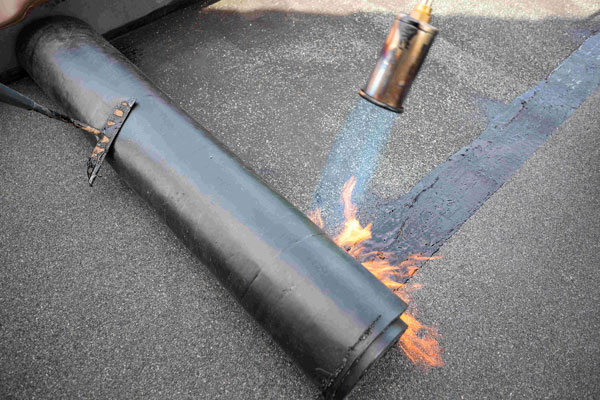What Is Bitumen?
Bitumen is a black, sticky, and highly viscous liquid or semi-solid form of petroleum that is primarily used for binding aggregates in road construction and waterproofing applications. It is produced through the distillation of crude oil and serves as a key material in various infrastructure projects due to its durability, adhesion properties, and water resistance.
At iranpetroexport, we provide top-grade material tailored for infrastructure, industrial, and commercial needs worldwide. Our clients rely on us for consistent quality, efficient delivery, and competitive pricing—making iranpetroexport a trusted partner in global bitumen supply and export.
Types of Bitumen
1. Paving Bitumen
This type is mainly used in road construction projects where durability and load resistance are critical. It serves as the binding component in asphalt mixtures and performs well under extreme climate variations. Paving bitumen is graded based on penetration value and softening point.

2. Industrial Manufacturing Bitumen
Used in paints, adhesives, pipe coatings, and more, this category is essential in non-construction industries. It often requires enhanced thermal stability and chemical resistance. Industrial Manufacturing bitumen supports large-scale production environments.
3. Cutback Bitumen
Cutback bitumen is produced by blending standard material with volatile solvents like kerosene to reduce viscosity. This allows application without high heating, making it suitable for colder environments or remote road maintenance. Its fast curing and ease of use are major advantages for short-term sealing and priming. Cutback forms are categorized based on how quickly the solvent evaporates—rapid, medium, or slow setting. It is often used for priming surfaces before the final asphalt layer is applied.
4. Emulsified Bitumen
This form combines bitumen with water and an emulsifying agent, enabling cold application for roadworks and surface treatments. It's valued for safety, low environmental impact, and quick setting times. This type is especially useful in urban road maintenance and patch repairs. It can be applied directly without heating, reducing energy consumption and environmental risks. Different types are available based on breaking time and setting speed, such as rapid or slow-setting emulsions.
What Is Bitumen Used For?
Bitumen is a key material in modern infrastructure and industrial systems around the world. Thanks to its waterproofing ability, strong adhesion, and durability, it supports vital applications from road construction to insulation. Understanding its main uses helps engineers and project managers choose the right materials for cost-effective and long-lasting results.
Main Uses :
• Road construction
• Waterproofing systems
• Roofing applications
• Pipe and cable coating
• Industrial adhesive manufacturing
• Airport runway surfacing
1- Road Construction
Bitumen acts as the primary binder holding aggregates together in road and highway projects. Its flexibility and resistance to temperature variations make it suitable for long-lasting pavements, reducing cracking and deformation under heavy traffic loads. Heavy construction machinery used in road paving typically runs on fuels like automotive gas oil, which works synergistically with bitumen to create durable and resilient road surfaces. This combination ensures structural strength in both urban and rural settings, driven by performance and cost-effectiveness.

2- Waterproofing Systems
Structures like basements and tunnels rely on a durable barrier to resist water infiltration. It offers excellent protection against moisture, corrosion, and leaks when applied as a waterproofing membrane. The adhesive and hydrophobic nature of bitumen makes it ideal for sealing surfaces. It ensures long-term structural integrity in both residential and industrial buildings. This application is essential in areas prone to groundwater issues.
3- Roofing Applications
Flat and sloped roofing systems benefit from a weather-resistant material that performs well under sun, rain, and wind. It’s commonly used in roll roofing, shingles, and torch-on systems for enhanced longevity. Modified versions improve flexibility and resistance to UV radiation. Bitumen ensures reliable performance across a wide temperature range. Its usage supports leak prevention and thermal insulation.
4- Pipe and Cable Coating
Underground pipelines and cables require strong protection from soil, chemicals, and mechanical stress. A thick coating is applied to prevent corrosion and prolong service life. The insulating properties of bitumen make it suitable for extreme conditions. It forms a tight seal that maintains durability under pressure. This use is critical in oil, gas, and utility sectors.
5- Industrial Adhesive Manufacturing
Some adhesive products are made using a thermoplastic base that offers strong bonding and flexibility. It is commonly used in construction tapes, sealants, and panel adhesives. Bitumen enhances thermal stability and adhesion across various substrates. Its reliability makes it useful in automotive, textile, and insulation industries. Manufacturers value its consistent performance in demanding conditions.
6- Airport Runway Surfacing
Airport pavements face extreme mechanical stress during aircraft takeoff and landing. A flexible, durable material is required to absorb impact and resist fuel spills and fuel oil contamination. Bitumen provides a smooth and safe surface that reduces rutting and improves skid resistance. It is chosen for both commercial and military runways, where exposure to fuel oil and heavy loads demands high resilience. This ensures minimal maintenance and maximum operational safety.

Advantages of Using Bitumen
This material is known for its exceptional durability, adhesive strength, and resistance to environmental stress, making it a reliable solution across construction and industrial projects. From highways to waterproofing systems, it consistently performs under pressure while minimizing maintenance needs. Bitumen continues to play a vital role in infrastructure development, offering practical benefits that support long-term performance and cost-efficiency.
Key advantages :
• Excellent durability and weather resistance
• Strong adhesive properties for binding materials
• Low maintenance and long service life
• Flexibility under temperature fluctuations
• Compatibility with multiple construction methods
• Cost-effective for large-scale infrastructure projects
Thanks to these features, bitumen remains a preferred material in both public and private sector construction. Its ability to withstand traffic stress, water damage, and climate extremes ensures the longevity of roads and buildings. Additionally, its economic efficiency and widespread availability make it a smart choice for engineers and planners aiming for high-performance outcomes with minimal long-term costs.
Bitumen vs Asphalt
Bitumen and asphalt are often used interchangeably, but they refer to different materials with distinct roles in construction. It is a black, sticky binder derived from crude oil, while asphalt is a composite material made by mixing it with aggregates like sand and gravel. Bitumen acts as the glue that holds the asphalt mix together, giving it strength and flexibility. Asphalt is typically used for paving roads, parking lots, and airport runways due to its durability and load-bearing capacity. In contrast, it alone is also used in waterproofing, roofing, and sealing applications. Understanding the distinction helps professionals choose the right material based on structural and environmental needs.
The Role of Bitumen in Waterproofing and Insulation
Bitumen waterproofing plays a critical role in protecting structures from water infiltration, moisture buildup, and long-term damage. Its strong adhesion and impermeable nature make it ideal for basements, foundations, tunnels, and flat roofs. The elasticity of this material allows it to expand and contract with temperature changes, maintaining its integrity over time. These waterproofing systems often come in the form of membranes, coatings, or self-adhesive sheets that are easy to apply and long-lasting. They create a continuous barrier against water penetration, preventing leaks and structural degradation. In insulation, bitumen enhances thermal protection by sealing gaps and reducing energy loss. Its effectiveness and affordability make it a preferred solution in both residential and commercial construction.

Safety Guidelines for Bitumen Handling and Storage
Proper handling and storage of bitumen are essential to ensure worker safety, prevent accidents, and maintain material quality. Since bitumen is handled at high temperatures and has flammable properties, strict safety protocols must be followed during transport, heating, and application. Employers and technicians must be trained in risk management procedures, and facilities should be equipped with appropriate protective measures. Below are key safety guidelines for working with bitumen in industrial and construction environments:
Key Safety Practices:
- Use Personal Protective Equipment (PPE): Always wear heat-resistant gloves, long-sleeve clothing, face shields, and safety boots when handling hot materials.
- Ensure Proper Ventilation: Work in well-ventilated areas to avoid inhalation of fumes, especially in enclosed or underground spaces.
- Control Heating Temperature: Never overheat the material. Maintain recommended temperatures to prevent fire hazards and degradation.
- Prevent Water Contact: Keep materials away from water to avoid violent splattering, which can cause serious burns.
- Label and Store Properly: Store materials in clearly labeled, sealed containers away from direct sunlight or ignition sources.
- Emergency Readiness: Keep fire extinguishers, burn kits, and emergency showers accessible in handling zones.
Following these safety guidelines not only protects personnel but also ensures consistent quality and performance throughout the application process.

Why Choose iranpetroexport for Bitumen Supply?
Selecting a reliable supplier is crucial to ensure product quality, steady availability, and timely delivery. iranpetroexport has built a strong reputation by consistently providing premium-grade materials that meet global standards. With extensive experience and a skilled technical team, iranpetroexport offers customized solutions for infrastructure, industrial, and commercial projects.
Focusing on quality assurance, environmental responsibility, and customer service, iranpetroexport is a preferred choice worldwide. Efficient logistics, competitive pricing, and rigorous testing ensure consistent performance. Whether for road construction, waterproofing, or industrial use, clients trust iranpetroexport for precise and professional bitumen supply.
Conclusion
Bitumen remains a critical material in modern construction and industrial operations, offering durability, flexibility, and cost-effectiveness across various applications. Choosing the right supplier ensures both performance and reliability. iranpetroexport not only delivers high-quality bitumen worldwide but also supplies essential agricultural inputs such as Urea Fertilizer, Granular Urea, and Prilled Urea, meeting diverse market needs with precision and trust.
